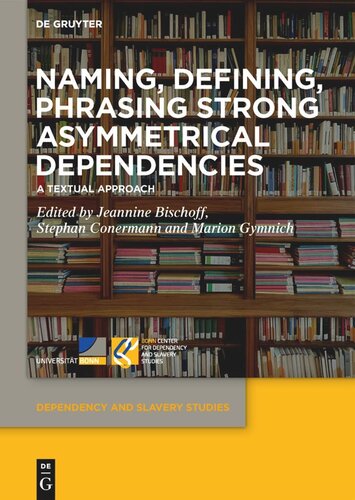

Most ebook files are in PDF format, so you can easily read them using various software such as Foxit Reader or directly on the Google Chrome browser.
Some ebook files are released by publishers in other formats such as .awz, .mobi, .epub, .fb2, etc. You may need to install specific software to read these formats on mobile/PC, such as Calibre.
Please read the tutorial at this link: https://ebookbell.com/faq
We offer FREE conversion to the popular formats you request; however, this may take some time. Therefore, right after payment, please email us, and we will try to provide the service as quickly as possible.
For some exceptional file formats or broken links (if any), please refrain from opening any disputes. Instead, email us first, and we will try to assist within a maximum of 6 hours.
EbookBell Team

5.0
48 reviewsOpen Access
An examination of the terms used in specific historical contexts to refer to those people in a society who can be categorized as being in a position of ‘strong asymmetrical dependency’ (including slavery) provides insights into the social categories and distinctions that informed asymmetrical social interactions. In a similar vein, an analysis of historical narratives that either justify or challenge dependency is conducive to revealing how dependency may be embedded in (historical) discourses and ways of thinking. The eleven contributions in the volume approach these issues from various disciplinary vantage points, including theology, global history, Ottoman history, literary studies, and legal history. The authors address a wide range of different textual sources and historical contexts – from medieval Scandinavia and the Fatimid Empire to the history of abolition in Martinique and human rights violations in contemporary society. While the authors contribute innovative insights to ongoing discussions within their disciplines, the articles were also written with a view to the endeavor of furthering Dependency Studies as a transdisciplinary approach to the study of human societies past and present.